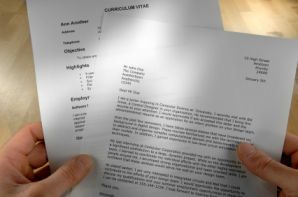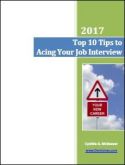Resume Writing Do's and Don'ts
Why is it so hard to get resume writing right?
As a recruiter, I've seen thousands of resumes. And as most job seekers already know, the overwhelming
majority of them end up in the "no" pile. Think about how many jobs you apply for, and how many calls
you get for interviews.
Is there something wrong with your resume? Chances are your existing resume is acceptable, although
not the best that it could be. Here are some quick tips on things you should do to strengthen your
presentation, and some things to avoid.
Resume Writing Do's - Substance
- Include a Summary Statement rather than a resume objective. This should be a short narrative
of 3-5 sentences describing your key strengths and experience.
- A chronological format is preferred. This means listing your most recent position
first, and working in reverse chronological order back to your earliest experience.

- Everyone's experience can fit on 2 pages. If you have several years of working experience,
summarize your early experience, listing dates, employers and titles only. No need to list accomplishments from 20 years ago!
- Include your name on Page 2.
- For each employer, provide a 1-2 sentence description of what the company and/or your division
does. Include a scope statement to indicate revenue base and number of employees. This is an important,
especially if your company is not a household name.
- Provide a short description of your responsibilities, but focus most of your presentation
on your significant accomplishments. Use strong action verbs to highlight your role.
- More recent positions should include more accomplishment statements.
- List education with your highest degree first. Omit graduation dates.
- List professional continuing education only to the extent it's relevant, substanative, and recent.
- Include Board positions and membership in professional associations only if they are recent.
If you belonged to the Direct Marketing Association in 1983, it is no longer relevant!
Resume Writing Do's - Style
- Vary the font used in your resume to create some contrast between sections. Some bold and
italics works well provided they are not overdone.
- Make sure your font is readable. Arial or Times New Roman are preferred.
- Avoid tables in your formatting. They do not always open correctly.
- Leave plenty of white space to ensure that your document is easy on the eyes. Small margins and
cluttered text will not be well received by the person screening your resume.
Resume Writing Don'ts

- Your resume is not your job description. Don't be tempted to use your job description in writing
your resume. Think accomplishments rather than what your daily duties are.
- Resume objectives are limiting. Avoid them.
- Don't write your resume in the first person. "I" should not appear in your document.
- Make sure your contact information is professional. Your email address and voice mail message
should be employer worthy. Your 2 year old on your voice mail is not professional. Likewise, putterbill@anydomain.com
is not appropriate.
- Avoid expressing dates in months/year. This format highlights any gaps in your record. Since
your resume is used to screen you out, not in, you want to avoid this level of detail. You will need to address any
gaps when you're interviewed, assuming you're asked!
- Don't list every organization you've ever belonged to. Avoid listing political and religious
organizations if possible. You don't want to be screened out because an interviewer is biased.
- Don't include a picture. The employer is not permitted to ask you any questions related to
race, religion, age, ethnicity, etc. Including a photo can be problematic for the employer.
- Don't include personal information - marital status, children, height, weight. Again, these are
things an employer should not know.
- Don't list your references on your resume. There are better ways to handle this important
part of the hiring process.
Take stock of your resume and make changes as needed. You can't get the job if you can't get the interview!
Use these tips to put your best foot forward, and more importantly, avoid costly mistakes. Your resume only gets
a 15-20 second review before the screener decides if you have a shot. Make the best of it!








